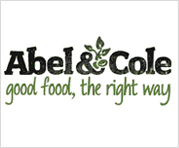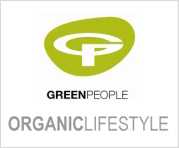It’s sometimes easy to feel bamboozled by all the ‘green’ and ‘fair’ terminology that is flying around today. The following definitions are intended to clarify what’s what and make life simple for you!
Fairtrade
Fairtrade is a market based approach that aims to help producers in developing countries obtain better trading conditions. The Fairtrade cotton in products with Fairtrade certification has been grown by farmers who receive a fair deal for their work. In addition to their salary they also receive a premium which goes towards projects within their local community such as building a school or establishing access to water.
Everyone in the supply chain, from the certified producer organisations through to the companies licensed for the consumer-ready product, must be registered by one of the FLO Labelling Initiatives or FLO-CERT. All registered companies are subject to independent audits to ensure compliance with Fairtrade standards. At present, the only material that the Fairtrade Foundation certifies is cotton.
Fairly Traded
Fair trade products have been produced ethically. This means that the workers are paid a decent wage and their working conditions are closely monitored to ensure they are fairly treated. Organisations such as the Ethical Trading Initiative in the UK promote ethical working practices for workers worldwide. There are numerous organisations working towards this and most local governments already have legislation in place for this. However, enforcing it is another matter. It is technically difficult to adapt the Fairtrade Certification model of standardized minimum pricing to crafts and other products made by small-scale artisans. These are unique, made of varied materials and have highly varied production processes and costs. However FLO is currently working with the International Fair Trade Association to see whether they could create a certification for these products in the future.
Organic
For a product to be labelled ‘organic‘, it needs to have received at least one of a number of recognised certifications. There are numerous national and international standards including:
Organic cotton or organic wool has been produced without the use of chemicals or artificial/manmade chemicals and none have been used in the processing of raw fibres to finished product.
Organic cotton represents only 0.76% of total world-wide cotton production.
Eco Friendly
Minimising the impact on the environment is at the heart of the production of these eco-friendly products. There are many stages in the production of clothing and accessories and these brands focus on one or a number of them.
At the moment, there is no official certification for this type of production.
A note on bamboo. You may have noticed that there are no companies that specialise in bamboo products on this site. Whilst bamboo is a fast growing plant that does not need any fertilisers or use pesticides, the processing of the plant into fibres requires numerous chemical processes which are not environmentally friendly.
Vintage / Second Hand
Vintage fashion is a fun way to shop – and arguably one of the most environmentally friendly too! Well made clothes or those that haven’t been worn much can still give much pleasure – and you’re unlikely to see anyone else wearing the same thing. Clothes from accross the decades can be mixed with your current wardrobe to create individual looks.
Recycled
A bit of creativity (and scissors, a needle and thread) is all that’s needed to produce stylish new recycled clothes and accessories from things you might otherwise throw away.
Other
‘Upcycling’ is a process of taking pieces of fabrics that would otherwise be thrown away and turning them into unique garments.





